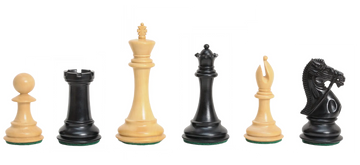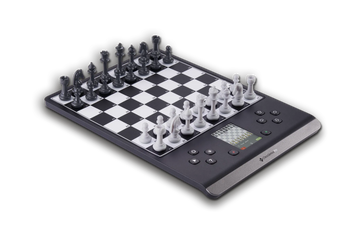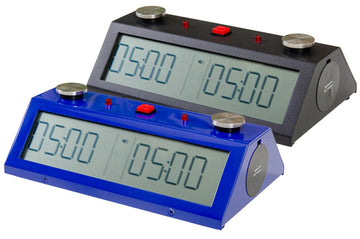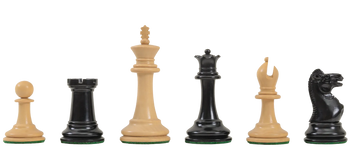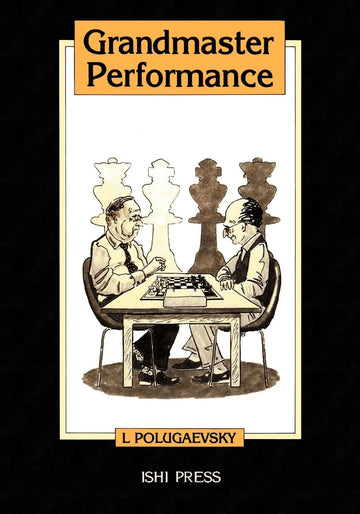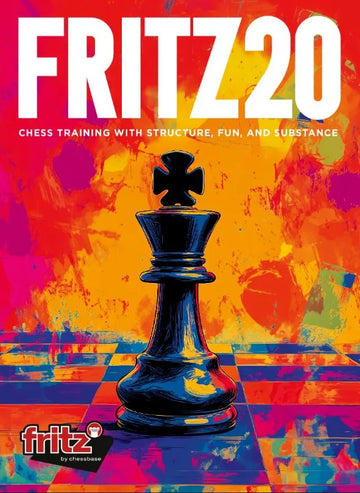What Does It Take to Be a Chess Grandmaster
Every sport, instrument, or hobby has a pinnacle. The best of the best. In basketball, it’s playing in the NBA, in acting, it might be starring in a blockbuster film, and in chess, it’s becoming a Chess Grandmaster. This is the highest ranking and title you can achieve in the chess world. This means you hold a FIDE title and rating of at least 2500, indicating you are stronger than 99% or more of chess players worldwide. Don’t trick yourself, GM is not a simple achievement, it is an elite group, and it takes a lot to get there.

Understanding the Chess Rating System
What does it mean to be 2500 ELO? ELO is a rating system used in various areas to track chess ability. If you play chess online, you will be familiar with a similar rating system that is used to track your online rating. If you play an online game on Lichess or Chess.com, when you win or lose, your rating will go up or down depending on the result and the rating of your opponent. The actual rules and math are not as important; just win games, and our rating goes up. Over-the-board ELO rating works in a similar fashion. If you play in the US, a USCF (United States Chess Federation) game will usually adjust your USCF national rating only. Most beginners will start with a rating somewhere around 500-1000. But this is only USCF!
FIDE
While you can gain a National Master (NM) title by playing USCF games, in order to gain the international title of GM, you need to gain a FIDE (International Chess Federation) rating of 2500. The gap between a 1000-rated USCF player and a GM is wider than most people think. Truthfully, a casual chess player would lose 1000 games out of 1000 against even the weakest grandmaster, if no odds were given, as in less time or pieces for the GM. This may seem disheartening for beginners, but to me, it shows the vastness of the game of chess. There is so much room in this game for improvement.
Other Chess Titles
Candidate Master (CM)
The CM title is awarded by FIDE to players who reach a FIDE classical rating of 2200. This is still an incredible achievement, but 300 rating points below just the rating criteria of GM.
FIDE Master (FM)
FM is similar to CM, but requires a FIDE rating of 2300 or higher. This is also an incredibly impressive achievement, representing a significant leap from a national master's level, as international ratings are more challenging to attain.
International Master (IM)
An International Master must reach a FIDE rating of 2400 or higher. Only 100 points below the level of a GM. They must also earn IM norms. Norms are a unique part of chess titles that we will dive into later, but they are a part of the process that makes becoming an IM more difficult than FM or CM. Players are required to earn three IM norms and fulfill additional criteria, such as playing a specified number of games, facing opponents from various federations, and competing against other titled players. Some famous content creators, such as GothamChess and Eric Rosen, are IMs.
Requirements to Become a Chess Grandmaster
So, to become a Chess Grandmaster, you have to achieve a FIDE rating of at least 2500 and earn three GM norms in officially recognized international tournaments. Now, you may think that if the difference between IM and GM is only 100 points, then it wouldn’t be that difficult, but you would be very wrong! At that point, all of your tournaments are against incredibly talented players, including underrated youth players who are shooting their way up to the GM level. Famously, GothamChess has documented the difficult journey of an IM trying to make that leap, and has so far been unsuccessful.
What are Chess Grandmaster Norms?
Grandmaster Norms in chess are a specific performance standard achieved in a tournament, which showcases that a player has achieved a certain threshold of ability. Tournaments that aspiring Grandmasters play in must follow certain standards for a norm to be achievable by a player during that tournament. The player must have a high enough performance rating, the tournament must have a minimum of nine games, and their opponents must be of a certain strength and represent multiple different chess federations. If a player and the tournament meet these minimum requirements, a player can earn a GM Norm.
Playing in FIDE-approved Tournaments
To become a Grandmaster, a player must have earned their Grandmaster norms by participating in FIDE-approved tournaments. This means that it can be challenging, depending on your origin or economic status, to participate in and qualify for tournaments. Often, juniors will travel abroad to compete in as many qualifying tournaments as possible, and IMs seeking the Grandmaster title will do the same. Then, in those tournaments, they have to, of course, play well! Ideally, a player’s National chess federation would support their players, but it can be an arduous process.

Chess Grandmaster Essential Skills and Knowledge
So, the logistics of becoming a Grandmaster are difficult, but chess is even more difficult! In order to play competitively at the top levels of chess. Like in any endeavor, the best of the best are not just the most skilled, but also the most knowledgeable. Grandmasters have studied and memorized more chess in their careers than any others.
Opening Theory
To be a grandmaster, you have to have immense knowledge of opening theory, being able to play ten, fifteen, even twenty moves of theory in every game that you play. This means memorizing every opening that you play, and being ready for whatever your opponent might throw at you.
Middlegames and Tactics
You also have to have very strong midgame tactics and awareness of tactical motifs. The difference between good and all-time great players is consistency! You may spot a tactic 90% of the time, but a grandmaster will never miss that same tactic. This consistency must also be evident game after game. Anyone could theoretically play one game against a grandmaster level, but to be a GM, you do it every game.
Endgames
Endgames are their own ocean of positions, memorizations, and theory that grandmasters must master. The best players can visualize a winning endgame, whatever it may be, and play toward that position without worrying whether it is, in fact, a winning one. Endgame study is essentially more memorization, knowledge, and positional understanding that grandmasters possess. The best players have mastered endgame techniques and learned everything these advanced chess books have to teach.
Chess Grandmaster Training and Development
To become a grandmaster, players typically receive serious chess coaching from a very young age. Learning chess early is one of the most significant indicators of whether a player can become a Grandmaster. I, as well as probably every chess coach, have been asked the question, “Could I still become a grandmaster?” Generally, this is asked by an aspiring adult learner who thinks they could improve. The sad reality is that unless you start playing chess under the age of ten or so, you will likely not be able to reach the Grandmaster level.
Chess Coaching
Not only do Grandmasters begin playing chess at a young age, but they are also in a position to receive chess coaching early and consistently. Remember all of those openings, middlegames, and endgames that I said a GM needs to know? Well, good chess coaching is one of the ways grandmasters learned all that critical information. They also learn basics like chess notation, study famous past world chess championship games, and complete numerous chess puzzles to improve.
Ultimately, in order to become a chess Grandmaster, you need a lot of things to go right for you, combined with a lot of natural skill and talent, plus an incredible amount of work. Then you have a chance to become a member of the elite chess club that is Grandmaster. If you are a new chess player or just starting to learn the game, don’t worry too much about titles and ELO ratings. Just try to learn more about the game and have a good time. The best players out there had to start somewhere, and Chess is a game for all.
Great Goals for Beginners
If you are a new chess player, I think it is best to set realistic and obtainable goals for your chess career. Give yourself a certain number of tournaments to try and play in the year. If you are sub-1000 rated online or USCF, pick a rating about 100 points higher and shoot for that rating in a given amount of time, depending on how much time you have to allocate to chess. Most importantly, don't be disappointed in yourself if you struggle; adjust your goals as needed. Even Grandmasters had to have small achievable goals in the beginning.

